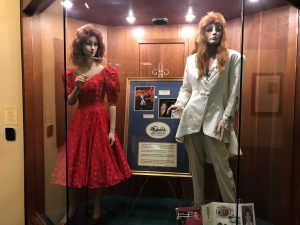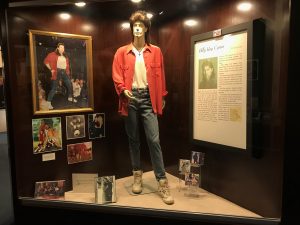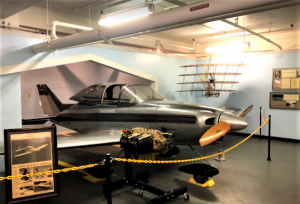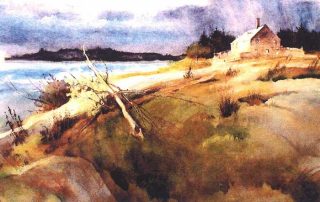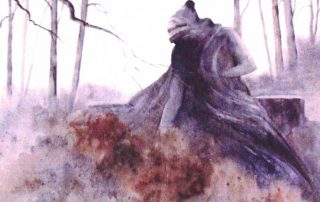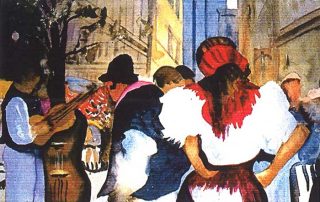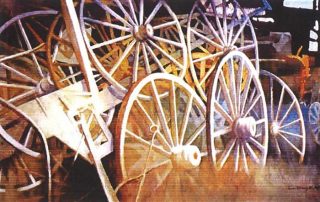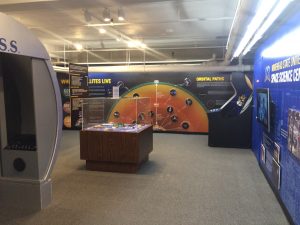Permanent Displays
The Highlands Museums has several permanent exhibits — toggle any below for more information:
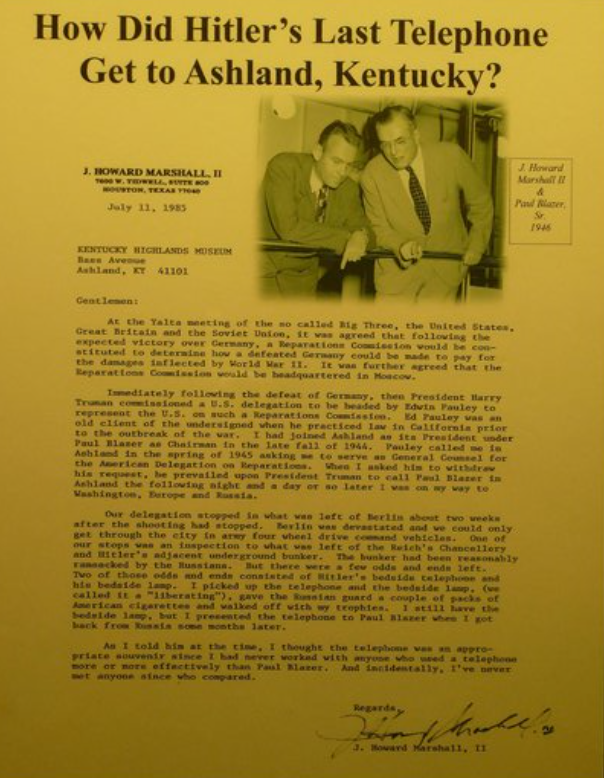
A community responds to World War II
The American home front suffered little during the war. Food was rationed, but no one went hungry; gasoline was rationed, but chiefly for those who had no pressing need to drive. Nevertheless, it was from this secure American homeland that Ashland and the nation produced the guns, planes, tanks, ships, food, fuel and all the other items that not only equipped the huge American war machine, but our allies as well.
Men and women from Eastern Kentucky were part of the citizen army that fought the costliest war, in both blood and money, in our nation’s history.
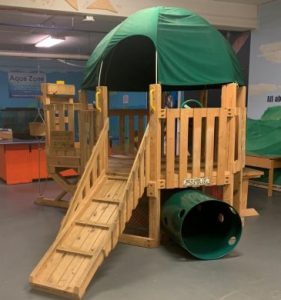
What do you see when you’re up in a tree? Learn about the natural world around us. Bugs and beetles, butterflies and snakes, animals and birds, plants and flowers all take their place in the Discovery Center exhibit.
Step into a world when late night house calls were made on horseback and payment was in chickens and produce. Note the products of local drugstores, along with equipment used by doctors decades ago.
Rotating exhibit.
This segment of the museum features twelve local musicians whose careers have brought national acclaim. A unique exhibit that may catch your eye is our Music Quilt, an interactive wooden sound sculpture. Just place your palm on any of the pieces and listen!
Cavers can investigate the Discovery Cavern to learn all about caves and bats, stalagmites and stalactites.
Local aviation history, airplanes, and a wind tunnel focuses on the history of flight.
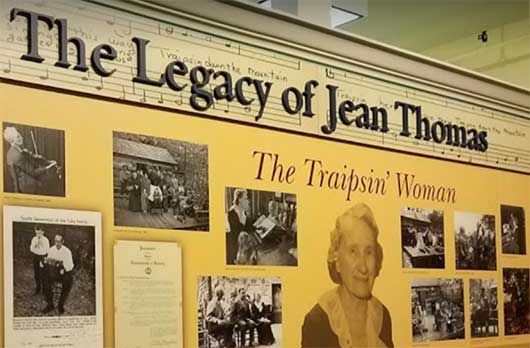
Exhibit about Ashland resident, Jean Thomas, who in the early 20th century traveled throughout the hills and hollers of KY as a court reporter. She later organized the American Folk Song Festival – performances of songs and drama held every June in Thomas’ backyard.
Joyce Williams has attained a national reputation for her watercolor paintings and her works have gained consistent acceptance in juried exhibitions throughout the country. Awards totaling more than 130, plus three Gold Medals of Honor, four bronze medals and the gold and silver Brubacher medallions include those from the American Watercolor Society, Knickerbocker Artists, Allied Artists, Watercolor West, Salmagundi Club, National Arts Club, Audubon Artists, Kentucky Watercolor Society, Rocky Mountain Watermedia Association, Hudson Valley Art Association, and many more. Her work is included in private, corporate, and museum collections throughout the country and she is listed in Who’s Who in American Art and American Women in the Arts. Her work has been featured in several periodicals including Artist Magazine and North Light Magazine.
Ms. Williams is a graduate of Virginia Intermont College and the University of Kentucky. Joyce Williams was an Ashland native and resided in Lexington, Kentucky for a period of her life. She donated a portion of her collection of paintings for display, for sale, and for the Highlands Museum & Discovery Center’s permanent collections. The gift is a way for Mrs. Williams to bring the love of painting to people in her hometown.
Mrs. Williams said, “Coming to the conclusion that I believe that gifts of this type are better to be returned to your roots,” Mrs. Williams decided to make a lasting contribution of her paintings to the Highlands Museum & Discovery Center and the people of Ashland, “where I lived and raised our family.”
ALL JOYCE WILLIAMS PAINTINGS ARE NOW HALF PRICE! Please contact the museum for more information and a list of available paintings.
Joyce Williams Paintings
Schedule your next meeting with us! This conference room features lovely artwork depicting early Ashland and will seat 30 people.
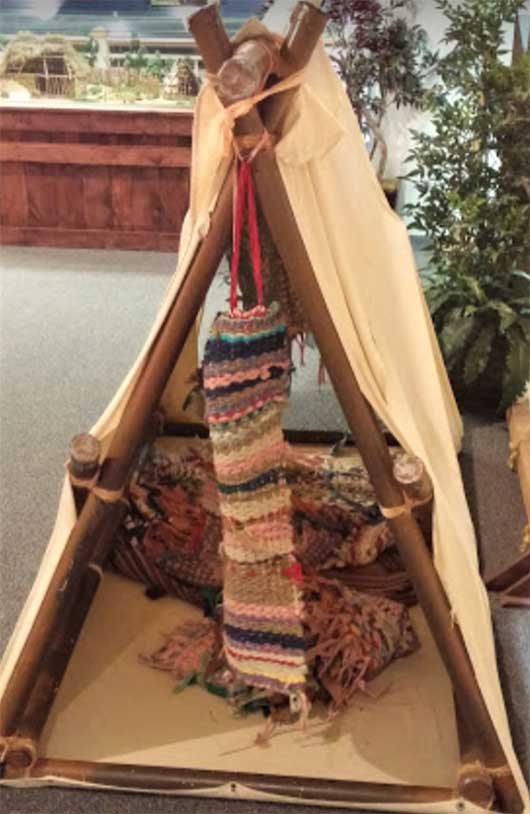
This exhibit explores the lives of the early peoples of Kentucky. Includes educational dioramas, artifacts and interactive displays. Children can play in the hut or make a rubbing to take home.
Learn about how people live and the jobs they do along the Ohio River.
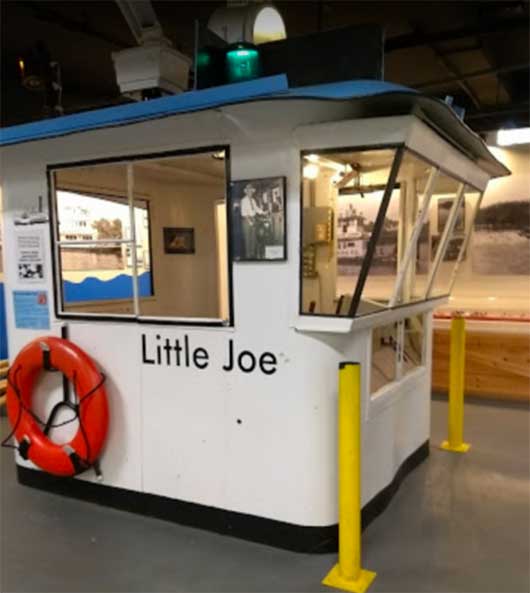
Visitors “travel the Ohio River” in Little Joe, a real tugboat. Young explorers will take a close look at boats and bridges as well as fish, frogs, and tents.
Brought to the museum through a partnership with Morehead State University’s Space Science Center. Visitors will learn about satellites, their construction and the programs offered at MSU. Included is the Highlands International Space Station where young visitors can experience a variety of features.
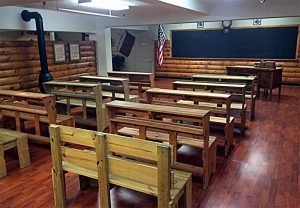
Visit a 19th century classroom! Dress in clothes of the era and become a student or teacher of the 19th century. Write on an original “blackboard” and drink from a bucket with a dipper: warm yourself by the potbelly stove.
Major rotating exhibits.
The Highlands Museum & Discovery Center believes the power of play is too vital to ignore in the learning process. That’s why our community, along with a determined Board of Trustees, has launched our campaign for the all-new Clark Family Discovery Center on our 2nd floor. LEARN MORE HERE
Offers an educational play area for children 5 and under.
Especially for children: 0-18 months offers a soft-sided play space for our youngest visitors.
Rotating Exhibits
The Highlands Museums has rotating exhibits on display; these change regularly. Toggle below for more information:
Artist’s Corner is a place for local artists to display their work! The gallery space showcases a variety of art on a rotating schedule four times a year and is located on the mezzanine.
Forms are available at the museum or by emailing heather@highlandsmuseum.com. For further questions, please call the museum at 606.329.8888 or email heather@highlandsmuseum.com.
Humans have adorned themselves with various types of jewelry since the beginning. This exhibit studies the evolution of jewelry from ancient times until the late 20th century. Focusing primarily on costume jewelry, this exhibit demonstrates how women used jewelry to change their look during difficult times such as the Great Depression and World War II. Visitors will learn about the timelessness of the oldest gemstone and what materials early peoples used to create jewelry. How did birthstones come about? Visit “Jewels” to find out! Open now through November.
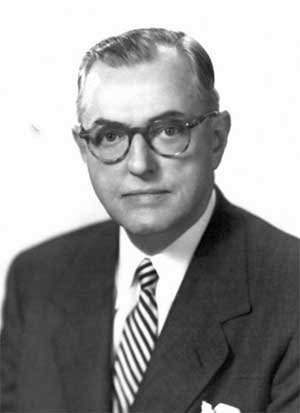
Paul G. Blazer
This exhibit studies the life of one of Ashland’s Finest. With artifacts related to Ashland Oil and personal pieces from the Blazer family, learn about Blazers life and his influence on industry and education. Open now.
Explore the history of kitchens and cooking in this thorough exhibit. See a 1930s/40s style kitchen complete with stove and ice chest. Learn about the days of milk men and why canning became essential during the World Wars. Scattered throughout the exhibit are mini histories of some of Kentucky’s most well known cuisine as well as examples of older beloved recipes. How were coffee and tea developed? You will find out when you visit the Highlands Museum. Now open on our Mezzanine level. Exhibit runs through December.

